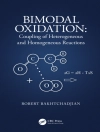Modern transportation allows people, animals, and plantsand the pathogens they carryto travel more easily than ever before. The ease and speed of travel, tourism, and international trade connect once-remote areas with one another, eliminating many of the geographic and cultural barriers that once limited the spread of disease. Because of our global interconnectedness through transportation, tourism and trade, infectious diseases emerge more frequently; spread greater distances; pass more easily between humans and animals; and evolve into new and more virulent strains.The IOM’s Forum on Microbial Threats hosted the workshop "Globalization, Movement of Pathogens (and Their Hosts) and the Revised International Health Regulations" December 16-17, 2008 in order to explore issues related to infectious disease spread in a "borderless" world. Participants discussed the global emergence, establishment, and surveillance of infectious diseases; the complex relationship between travel, trade, tourism, and the spread of infectious diseases; national and international policies for mitigating disease movement locally and globally; and obstacles and opportunities for detecting and containing these potentially wide-reaching and devastating diseases. This document summarizes the workshop.
Board on Global Health & Forum on Microbial Threats
Infectious Disease Movement in a Borderless World [PDF ebook]
Workshop Summary
Infectious Disease Movement in a Borderless World [PDF ebook]
Workshop Summary
Achetez cet ebook et obtenez-en 1 de plus GRATUITEMENT !
Langue Anglais ● Format PDF ● Pages 322 ● ISBN 9780309144483 ● Éditeur Alison Mack & David A. Relman ● Maison d’édition National Academies Press ● Publié 2010 ● Téléchargeable 3 fois ● Devise EUR ● ID 7141420 ● Protection contre la copie Adobe DRM
Nécessite un lecteur de livre électronique compatible DRM












